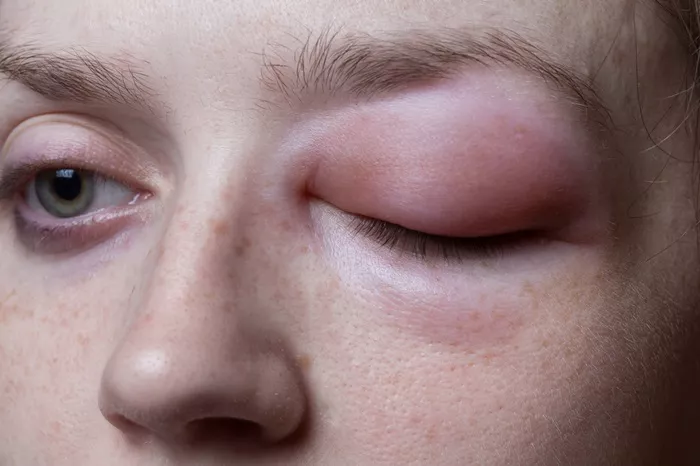Scarring is a natural part of the skin’s healing process after an injury. Whether it’s a small cut, a burn, a surgical incision, or acne, scars can form as the body repairs damaged skin. While some scars fade over time, others can be permanent and noticeable. Many individuals want to minimize scarring to maintain smooth, clear, and healthy skin. Fortunately, there are several natural remedies and home treatments that can help prevent and reduce the appearance of scars.
Understanding the way scars form and what can be done to prevent them is essential for anyone interested in improving the health of their skin. When the skin is injured, the body produces collagen to help repair the damaged tissue. However, the body’s healing process can sometimes lead to excessive collagen production, which results in visible scars. Some individuals may be more prone to scarring due to genetic factors, skin type, or the nature of the injury.
This article will explore effective home remedies to prevent and reduce scars. Using natural ingredients and following proper skincare techniques can not only help avoid scarring but also promote faster healing and overall healthier skin.
How Scars Form: Understanding the Skin’s Healing Process
Before diving into remedies, it’s important to understand how scars form. Scarring is a natural part of the skin’s healing process, but various factors influence whether or not scarring occurs and how severe the scar might be.
When the skin is injured, the body goes through several stages of healing:
- Inflammation Phase: This is the body’s initial response to injury. The body increases blood flow to the affected area to fight infection and start the healing process. This phase is often characterized by redness, swelling, and heat around the injury site.
- Proliferation Phase: This phase involves the formation of new tissue. The body produces collagen (the protein that helps form new tissue), and the wound begins to close. New blood vessels form to supply the wound with nutrients and oxygen.
- Maturation Phase: In this final phase, the wound fully heals, and the skin begins to remodel. The collagen fibers rearrange and become stronger, but the resulting scar may be noticeable or still visible, depending on the severity of the injury and the healing process.
Several factors can affect the appearance of scars, such as the depth of the injury, the location of the wound, genetics, and personal health habits. For example, some individuals are prone to hypertrophic (raised) scars or keloids due to overproduction of collagen. Others may develop scars that appear darker or lighter than their skin tone.
General Tips for Preventing Scars
Before we delve into the specific home remedies, here are some general skincare tips that can help prevent scars from forming:
- Keep the Wound Clean: It is crucial to keep any injury or wound clean to avoid infection, which can lead to scarring. Use mild soap and water to clean the area gently.
- Moisturize the Skin: Moisturizing the affected area helps to keep the skin hydrated and promotes healing. Dry skin can result in tightness and more noticeable scars.
- Protect the Wound from the Sun: Sun exposure can darken scars and make them more prominent. Always use a sunscreen with SPF 30 or higher on any healing wounds or scars.
- Avoid Picking or Scratching: Picking at scabs or healing wounds can cause further damage to the skin and increase the risk of scarring. Let the wound heal naturally.
- Apply Pressure or Silicone Gel Sheets: For some scars, applying gentle pressure or using silicone gel sheets can help prevent excessive collagen buildup. This is particularly helpful for surgical scars or large injuries.
Now that we have an understanding of scar formation and basic prevention, let’s explore some home remedies to reduce the risk of scarring.
Effective Home Remedies to Prevent Scars
Several natural ingredients found in your home can be effective in promoting skin healing and preventing scars. Below are some of the best home remedies for preventing scars:
1. Aloe Vera: The Healing Wonder
Aloe vera is known for its soothing and healing properties. It contains compounds like vitamins, enzymes, and minerals that promote skin regeneration and help reduce inflammation. Aloe vera is especially beneficial for treating minor burns, cuts, and abrasions, and it may help prevent scars from forming.
How to Use:
- Fresh Aloe Vera Gel: Extract the gel directly from an aloe vera leaf. Apply it generously to the affected area and leave it on for about 30 minutes before rinsing off with lukewarm water. Repeat this process twice a day for best results.
- Aloe Vera Gel (Store-bought): If fresh aloe vera is unavailable, you can use a natural, preservative-free aloe vera gel. Look for one that is 100% pure aloe vera gel.
Aloe vera’s hydrating properties also help keep the skin moist, promoting faster healing and reducing the chance of scars.
2. Honey: The Natural Moisturizer and Healer
Honey has been used for centuries as a natural wound healer. It has antiseptic properties, making it effective for preventing infections in wounds and cuts. Honey also acts as a moisturizer and helps in tissue regeneration. Regular use of honey can significantly improve the appearance of scars by keeping the skin hydrated and reducing inflammation.
How to Use:
- Pure Honey Application: Apply a thin layer of raw, organic honey to the scarred area before bedtime. Leave it on overnight and wash it off in the morning with lukewarm water. This will keep the skin moisturized and help prevent scarring.
- Honey and Lemon Mask: Honey can be combined with lemon juice, which has natural bleaching properties that can lighten dark scars. Mix one teaspoon of honey with a few drops of lemon juice and apply to the affected area. Leave the mixture on for about 15-20 minutes before rinsing off.
Be cautious when using honey on sensitive skin, as it can sometimes cause irritation in some individuals. Always perform a patch test before applying honey to a large area.
3. Coconut Oil: Natural Healing Power
Coconut oil is rich in fatty acids and antioxidants that promote skin healing. It is often used for treating dry skin, burns, and wounds. Coconut oil has anti-inflammatory properties that help reduce swelling, and its moisturizing abilities can prevent dry, cracked skin that could lead to scarring.
How to Use:
- Coconut Oil Application: Gently massage a small amount of virgin coconut oil into the scarred area twice a day. Be consistent with this routine for several weeks.
- Coconut Oil and Vitamin E: For an extra boost, you can mix coconut oil with vitamin E oil, which is known to be beneficial for scar healing. Vitamin E helps repair damaged skin cells and regenerate tissue.
4. Vitamin E: The Scar Reducer
Vitamin E is one of the most well-known remedies for scars. It is rich in antioxidants, which help to repair damaged skin and encourage the production of new, healthy skin cells. Vitamin E has long been used in topical treatments for scars and is believed to help reduce the appearance of old scars and prevent new ones.
How to Use:
- Vitamin E Oil: Apply pure vitamin E oil directly to the scar twice a day. You can also use vitamin E capsules by breaking them open and applying the oil directly to the skin.
- Vitamin E Cream: If you prefer a cream, look for a high-quality vitamin E cream or gel that contains vitamin E as its main ingredient.
Some people may experience irritation or allergic reactions to vitamin E. If this occurs, stop using the product and try another remedy.
5. Lavender Essential Oil: The Calming Oil
Lavender essential oil is well known for its calming scent, but it also has excellent healing properties for the skin. It promotes skin regeneration, improves circulation, and can help reduce the appearance of scars. Lavender oil has been shown to speed up the healing process by reducing inflammation and stimulating the production of collagen.
How to Use:
- Diluted Lavender Oil: Mix a few drops of lavender essential oil with a carrier oil such as coconut oil or olive oil. Gently massage the mixture onto the scar twice a day.
- Lavender Oil and Aloe Vera: You can also mix a few drops of lavender oil with aloe vera gel for added healing benefits.
Always dilute essential oils with a carrier oil before applying them to your skin, as essential oils are potent and can cause irritation if used directly.
6. Lemon Juice: Natural Lightening Agent
Lemon juice is a natural skin brightener and can help lighten dark scars and hyperpigmentation. The citric acid in lemon juice helps exfoliate the skin and promotes the regeneration of new skin cells. Lemon juice also has antibacterial properties, which can help prevent infection and scarring.
How to Use:
- Fresh Lemon Juice: Apply fresh lemon juice to the scarred area using a cotton ball, and leave it on for 10-15 minutes before rinsing it off with lukewarm water. Be cautious if you have sensitive skin, as lemon juice can sometimes cause irritation.
- Lemon and Honey: Combine lemon juice with honey to create a soothing and effective scar treatment. This combination can lighten scars while also moisturizing the skin.
Remember to always apply sunscreen after using lemon juice on your skin, as it can increase sensitivity to the sun.
Conclusion
Preventing and reducing scars is a common concern for many individuals, and fortunately, there are many natural remedies available at home to help with the healing process. Ingredients like aloe vera, honey, coconut oil, vitamin E, lavender essential oil, and lemon juice all play important roles in promoting skin health, reducing inflammation, and preventing scarring. By incorporating these home remedies into your skincare routine, along with general skincare practices like proper wound care, moisturizing, and sun protection, you can improve your chances of healing without the formation of visible scars.
While these remedies may not completely eliminate scars, they can certainly help minimize their appearance and promote healthier, more resilient skin. Consistency and patience are key when using home remedies, so be sure to follow the recommended routines and give your skin time to heal.
Always consult with a dermatologist if you have concerns about scarring or if you experience irritation with any home remedies.
Related Topics


































